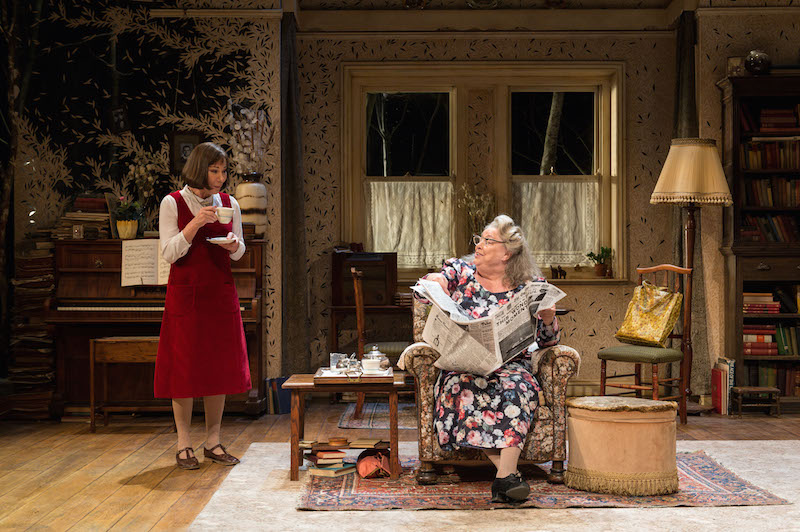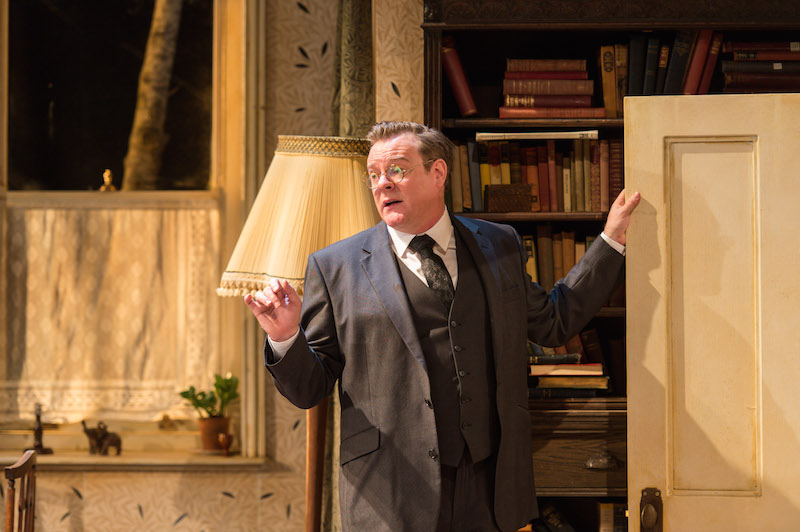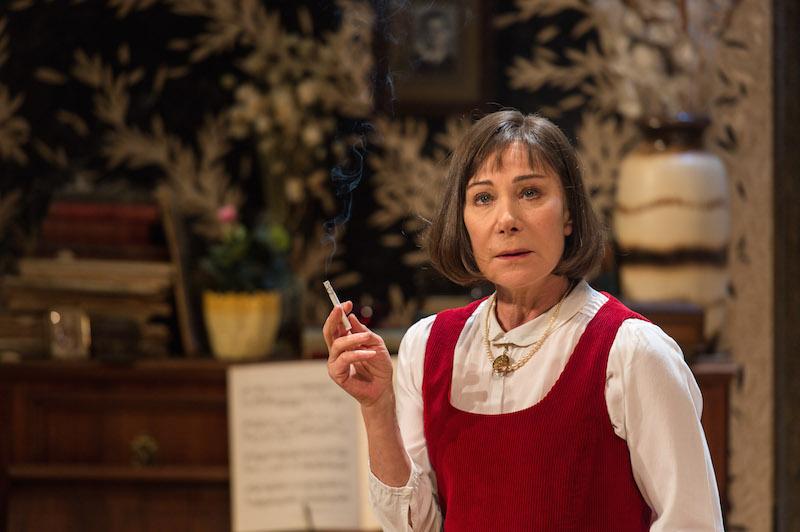Writing about writers: exploring what you know, or the very definition of stifling egoism? Either way, it can be a terrible trap for the playwright, with craft becoming not just the subject of a work, but its defining feature. Hugh Whitemore narrowly avoids that fate in his unashamedly writerly 1977 piece about poet and novelist Stevie Smith, which is packed to the gills with erudite bon mots, yet, in Christopher Morahan’s leisurely revival, somewhat lacking in dramatic thrust.
 Whitemore’s play sticks with the most tried-and-tested version of biographical theatre – namely, the semi-narrated chronological sweep. “Begin at the beginning and work your way to the end,” counsels Smith’s indomitable maiden aunt (Lynda Baron), and so Whitemore does, from invalided childhood through office work and part-time writing, a brief flirtation with courtship and comfortably mundane suburban living, through to suicide attempt, late-blooming celebrity and fatal brain tumour. Although Stevie is enjoyably driven by its title character’s voice and worldview, it does not share her pithiness, indulging a little too long in tangential anecdote.
Whitemore’s play sticks with the most tried-and-tested version of biographical theatre – namely, the semi-narrated chronological sweep. “Begin at the beginning and work your way to the end,” counsels Smith’s indomitable maiden aunt (Lynda Baron), and so Whitemore does, from invalided childhood through office work and part-time writing, a brief flirtation with courtship and comfortably mundane suburban living, through to suicide attempt, late-blooming celebrity and fatal brain tumour. Although Stevie is enjoyably driven by its title character’s voice and worldview, it does not share her pithiness, indulging a little too long in tangential anecdote.
The saving grace of this occasionally drowsy Chichester transfer is Smith herself, a Mitford-esque mixture of stoic cynicism, wry intellectual snobbery and candid desolation, skilfully resurrected by Zoë Wanamaker (pictured above right with Lynda Baron). Throughout, she’s a stylishly chain-smoking, engagingly acerbic guide, critic and raconteur, but most compelling in later scenes when the melancholic undertow carries her to grim reflection. Whitemore supplies various catalysts for Smith’s morbid tendencies, providing an informative context for her biting work, without offering too pat an explanation for this inscrutable hinterland. The famous "Not Waving but Drowning", a cry for help misinterpreted as merriment, retains its enigmatic darkness.
 It’s a loving paean to the eccentric outsider, who decides she’s built for friendship, not marriage, and prefers suburban exile to smart city living, even though the scope of her writing far exceeds Palmers Green. Her stubbornly disastrous fashion sense is that of a woman out of step: eternal schoolgirl in pinafore and ankle socks, even as she stoops and plods into premature middle age. Simon Higlett’s set, enclosing dusty, fussy chintz with overhanging trees, demonstrates both the security and claustrophobia of this existence, as does Baron’s increasingly frail “Lion Aunt”, whose rallying cry of “Stuff and nonsense!” poignantly recedes. Versatile Chris Larkin (pictured above left) fills multiple male roles, including secondary narrator, eager suitor and fey, reluctant chauffeur.
It’s a loving paean to the eccentric outsider, who decides she’s built for friendship, not marriage, and prefers suburban exile to smart city living, even though the scope of her writing far exceeds Palmers Green. Her stubbornly disastrous fashion sense is that of a woman out of step: eternal schoolgirl in pinafore and ankle socks, even as she stoops and plods into premature middle age. Simon Higlett’s set, enclosing dusty, fussy chintz with overhanging trees, demonstrates both the security and claustrophobia of this existence, as does Baron’s increasingly frail “Lion Aunt”, whose rallying cry of “Stuff and nonsense!” poignantly recedes. Versatile Chris Larkin (pictured above left) fills multiple male roles, including secondary narrator, eager suitor and fey, reluctant chauffeur.
Morahan’s production transitions smoothly between poetry, recitation and dialogue, leaving ample space for waspish poetic witticisms – “This Englishwoman is so refined,/She has no bosom and no behind” – but struggling to enliven the gently old-fashioned format, which trudges through respectful, linear anthology. This thoughtful and aptly wordy play doesn’t cut to the bone except when it directly quotes Smith’s piercing writing, but it makes a good argument for fresh engagement with her enduring work.















Add comment